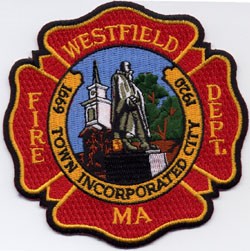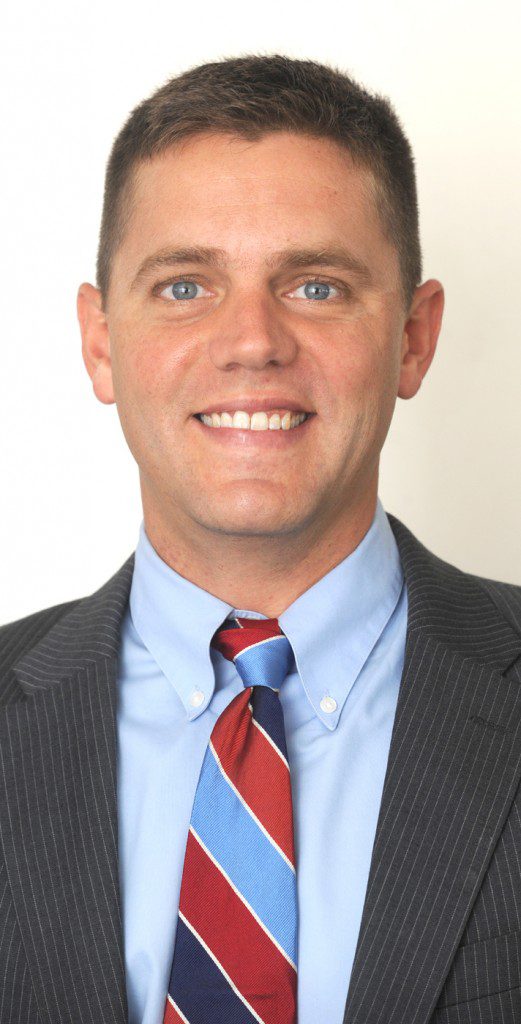WESTFIELD—For Gregory Heath, it started when he was doing something that many of us do every day—while driving.
“When I would notice it was when I was driving, hand on my lap just hanging there,” Heath, a Westfield firefighter, said. “But my hand would get tense as it hung there.”
He said he could stop the tenseness if he concentrated on it, but it would still keep occurring. He decided to see a doctor to try and figure out what was happening. At first, doctors diagnosed him with what was called “essential tremors,” which are tremors that affect your body but are considered benign and have an unknown origin.
However, the tremors became worse and they began to progress from the hand. After continuing to see a neurologist and having gone through a battery of tests, Heath was given a new diagnosis—Parkinson’s disease.
Now, three years later, Heath continues to work as a firefighter, not fighting fires but doing inspections for the alarms division at the department, and is also an advocate for firefighters who have suffered the same disease that he has, in spite of how the disease has affected him.
“It’s a struggle every day. It’ something you’re dealing with and thinking about,” Heath said. “It affects everything.”
According to studies from the Neurotoxins Institute, firefighters are as much as 10 times more likely to be diagnosed with Parkinson’s than the general public, and Heath is trying to bring awareness to the problem, including introducing legislation protecting firefighters who suffer from the disease in Massachusetts alongside Rep. John Velis.
For Heath, bringing awareness to the problem began with research. He started by trying to figure out how this could have happened, since he said that he never had a family history of the disease. This is when he found the story of an Indiana firefighter named Gary Coons.
Coons was diagnosed with Parkinson’s at 33, which is much earlier than the average diagnosis age ranging in the mid-50s, and his diagnosis was tied to his work as a firefighter. According to articles about Coons, the trigger for the disease may have come from a large warehouse fire that he investigated, which involved many paints and other finishing products. They suspected that the chemicals from the fire may have triggered the disease.
Coons eventually became an advocate for Parkinson’s in firefighters, like Heath, and also went and got legislation passed in Indiana to protect firefighters diagnosed with Parkinson’s, making it the first state to have such legislation. This helped to inspire Heath, who decided to bring the concern to the people and started a petition on the Change.org website.
After starting the petition, Heath said that he gathered over 50,000 signatures online. He read the over 2,000 comments that were received on the petition as well, and realized just how far-reaching this issue is. So, after seeing the impact he decided that it was time to take the next step and meet with his local politicians.
“Prior to Greg coming to my office I had no idea that Parkinson’s was affecting firefighters at significantly higher rates,” Velis said.
Heath’s appearance at the office and petition convinced Velis that legislation had to be made to protect those affected. Velis and Heath decided to work on drafting legislation together: “HD1670, An Act relative to Parkinson’s Disease Disability and Death in Firefighters.” This act would protect firefighters who contract Parkinson’s by creating a legal presumption that the disease was contracted from conditions related to their duty. This, in turn, would extend accidental disability benefits—benefits given to those injured or who become sick while in the line of duty—to those affected.
“Everyone we talked to has said the same thing—people who do jobs that not everybody wants to do, if they get sick in the line of duty, we have an obligation to take care of them,” Velis said.
Velis added that this concern, while focusing on firefighters, has the potential to extend to other professionals and if there are other ties, constituents are urged to bring the information forward to their local politicians.
Now Heath, with the support of his family—which he said he could not do any of this without—is getting ready for the next battle—legislation vote.
He hopes that the bill passes, and in order to try to make sure it does he and others affected by the disease will be gathering at the state house to try and influence and educate.
For more information, you can visit Heath’s Change.org petition, as well as sign it in support.


